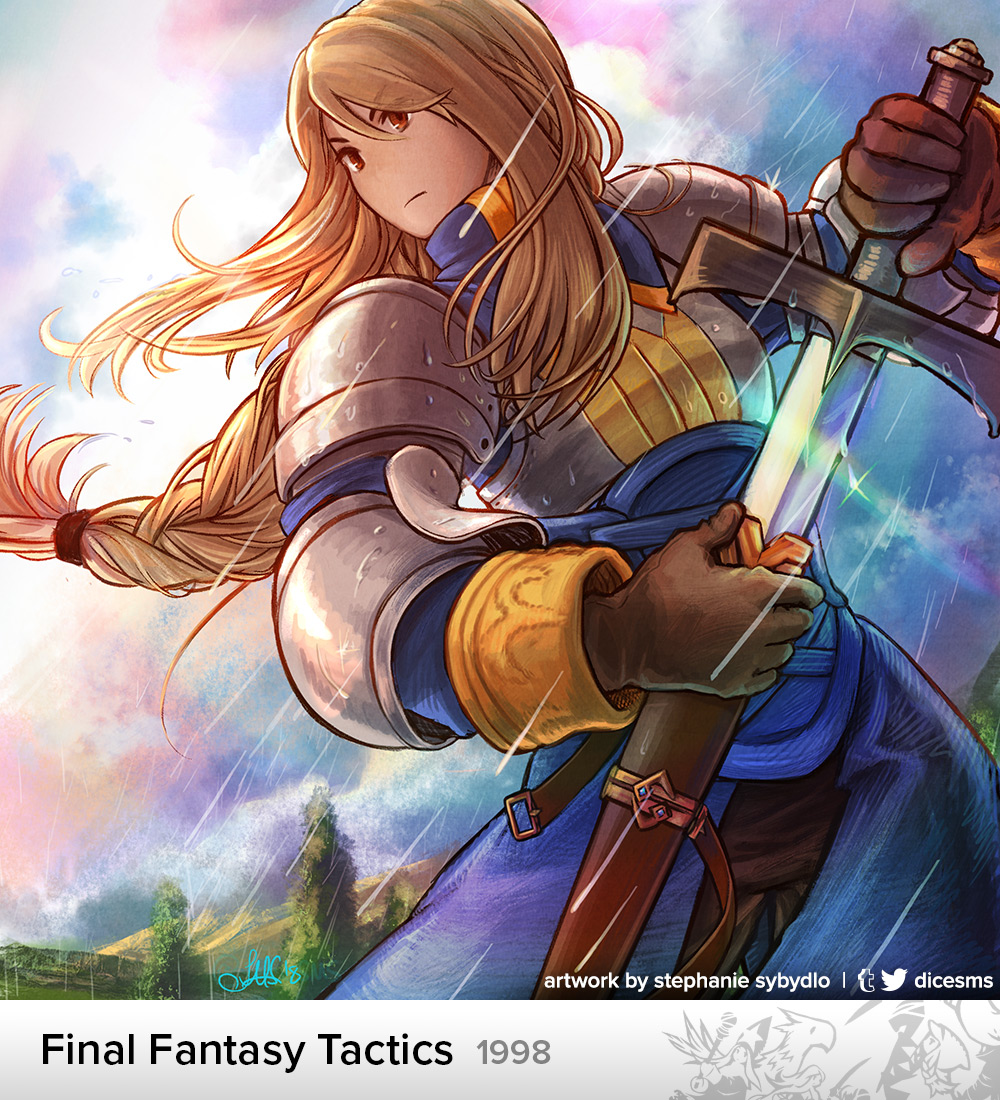
The first time I played Final Fantasy Tactics, I died right away, attempting Chapter 1, battle 1. And battle 2. And battle 4 (Dorter Trade City took me a couple of tries). And many battles thereafter. It wasn't because these fights are brutally difficult; the learning curve of Final Fantasy Tactics has a slightly steep first step, especially if it's your first strategy RPG (as it was for me as a preteen in 1998).
But then something clicks. Maybe you unlock a new class or skill that gives you an edge; maybe you develop a knack for positioning mages or archers; maybe a new town's selection of equipment is just what you needed. For me, the first turn was unlocking a few Punch Art skills around the same time my frontline fighters were learning Move+2, and the second was when I started getting good Samurai skills. Samurai quickly became my favorite job in Final Fantasy Tactics. Seriously, you get powerful magic unattached to the Faith stat AND attack and support skills that discern between ally and enemy AND an evasion skill based on Brave? Final Fantasy Tactics Samurai are way too good.
That feeling of mastery is the most memorable part of Final Fantasy Tactics to me. It's not the epic story and great characters (which I love) or the Hitoshi Sakimoto musical score (which I also love). It's the journey from struggling with your second fight to wiping out battlefields with magical mathematics in one turn on your hundredth fight. Final Fantasy Tactics' combat and skill systems seem overwhelming or even unfair at first but become more rewarding, more exploitable, and more entertaining the deeper you dive in.
A game most grand in scope, its praises must be sung. Final Fantasy Tactics!
Thinking of a game more absorbing than Final Fantasy Tactics is extremely difficult for me. The combination of the intricate and compelling story with a complex battle system keeps me coming back under a range of circumstances. There is no single way to play this game, and the party and battle related choices I make are likely to look entirely different from anyone else's playthrough. And this, this is what makes it stand out among Final Fantasy titles. The tactical nature of the battles pairs seamlessly with the overlying tale of intrigue, betrayal, and notoriety. It's not an exaggeration to say that I got drawn in immediately.
A task once begun must be seen through to the end. Dedication!
Naturally, all of this sounds rather involved, and it takes a certain type of personality (or at least mindset) to play this game through and really master it. It takes a level of passion, of dedication. I first attempted this game in the early 2000s, and it took me forever to get anywhere. I felt like I failed, and I will admit that I had a certain amount of awe toward the other gamers in the Final Fantasy online communities I visited because it seemed easy for them. Granted, this could be because I was one of the youngest people there, but even then, when someone has told me their favorite game is Final Fantasy Tactics it usually belies a determined and/or passionate side. (And yes, part of that is often a dedication to RPGs.)
Adapting to life's ebb and flow, let me apply this going forward. Life lessons!
Even as frustrated as I was, Ivalice was the perfect escape for me, and I kept coming back to it during relocations and major times of transition in my life. The logic and decision process gave me a sense of control and a familiar cycle where I could flow and focus on something that was not the transition at hand. I vividly recall curling up on the couch and playing it for hours surrounding my first major job placement after undergrad. I never really looked at it as a pointless escape, however, because as I slowly learned how to choose classes and manipulate battles and terrain/formation in my favor, it felt like I was exercising a way of thinking that could benefit me in real life. Between that and a plot that emphasizes personal principles in a world that is inherently chaotic and sometimes outright cruel, I feel like the game has given me a bit of a framework to navigate ambiguous situations and respond better to disadvantageous ones. I still have not done everything Tactics has to offer, like using all the different classes or completely mastering the Zodiac system, but I think its lasting impact is more the point.
